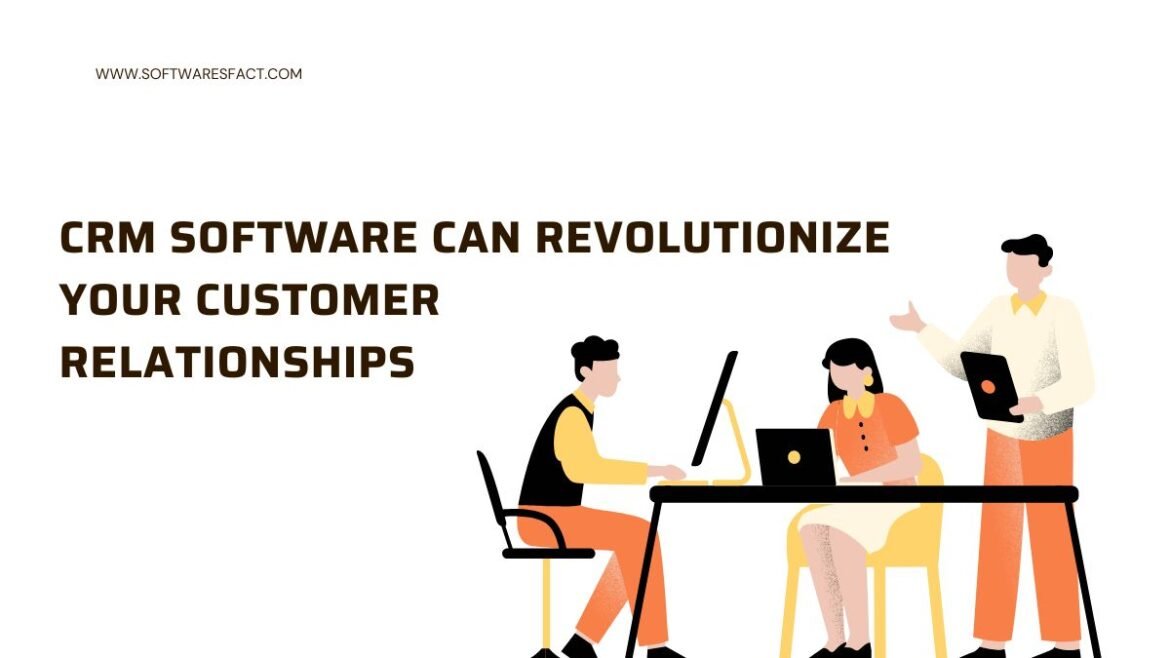Discover how CRM software improves customer relationships, streamlines sales processes, and boosts growth compared to businesses not using a CRM system
Customer Relationship Management (CRM) software is a powerful tool that can transform how businesses manage their customer interactions. Since customers are the core asset of any business, maintaining strong, ongoing relationships is crucial to long-term success. CRM software helps businesses by tracking communication, recording updates, and ensuring that necessary actions are taken to strengthen these relationships.
One of the most impactful ways CRM software revolutionizes customer management is through its automation features. It can send automatic reminders to follow up with customers at the right time and alert you when actions are required. This ensures that no potential lead or important interaction is overlooked, streamlining the sales process and driving growth.
The ability to track and analyze customer data is another game-changing feature of CRM software. It allows businesses to monitor how leads are generated, understand where customers are finding them, and document conversations during the early stages of interaction. This data is essential for forecasting future business opportunities and improving strategies. Additionally, it provides valuable insights that can be used to train the sales team, ensuring they can replicate previous successes.
In short, CRM software enhances every stage of customer engagement, from initial contact to long-term loyalty, making it an indispensable tool for businesses looking to scale their customer relationships.
With 7 years of experience, I’ve seen firsthand how implementing CRM software can significantly improve business operations. When a company uses a CRM, all customer interactions and data are centralized, allowing the sales team to stay on top of follow-ups and customer communication. Automated reminders ensure that no lead is forgotten, and every action is tracked efficiently. This not only enhances customer relationships but also boosts sales conversions. The company can also generate accurate reports to forecast future sales and improve strategies based on previous successes.
Use Case 1: Company Using CRM Software
Company Name: Bright Solutions
Industry: IT Services
Problem: Bright Solutions was struggling to manage communication with its growing customer base. Their sales team often missed follow-up opportunities, leading to lost deals, and it was difficult to track the progress of leads.
Solution: Bright Solutions implemented a CRM software system to streamline customer management.
How CRM Helped:
- Automated Follow-Ups: The CRM provided automatic reminders for the sales team to follow up with leads and existing clients, ensuring no opportunity was missed.
- Centralized Data: All customer information, including communication history and interactions, was stored in a single place. The sales team could easily track each customer’s journey, from initial contact to closing a deal.
- Forecasting and Reporting: The CRM generated reports on lead sources and customer behavior, helping the company make data-driven decisions and improve sales strategies. They also used this data to forecast future sales and allocate resources effectively.
Outcome: After implementing CRM software, Bright Solutions increased its lead conversion rate by 25% and improved customer retention by 30%. The sales team was able to stay on top of all interactions, leading to faster responses and higher customer satisfaction.
Use Case 2: Company Not Using CRM Software
Company Name: TechFix
Industry: IT Services
Problem: TechFix, like Bright Solutions, had a growing customer base but no centralized system for managing client interactions. They relied on spreadsheets and individual notes to track communication with leads and customers.
Challenges Faced Without CRM:
- Missed Opportunities: Sales representatives often forgot to follow up with leads on time, resulting in lost deals. Important customer interactions were easily overlooked or forgotten, especially as the client base grew.
- Disorganized Data: Customer data was scattered across emails, personal notes, and spreadsheets, making it hard for the team to maintain a clear picture of customer history. This disorganization led to inconsistent communication and a lack of coordination among team members.
- Limited Insights: Without a proper system for tracking customer behavior, TechFix found it difficult to generate meaningful reports or make data-driven decisions. Forecasting sales was challenging, and they couldn’t accurately assess which lead sources were most effective.
Outcome: As a result of not using CRM software, TechFix struggled to manage customer relationships efficiently. Sales conversion rates dropped, and customer churn increased. The company found it hard to scale and often lost potential deals to competitors with more organized processes.

